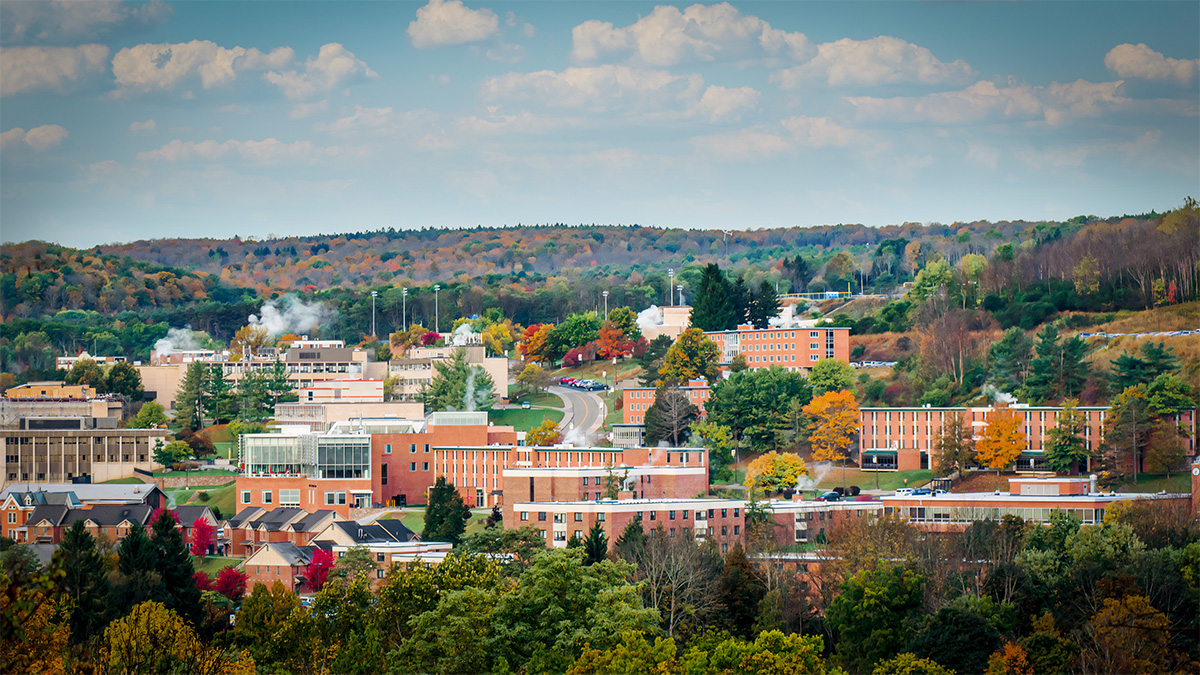
At a glance
Alfred State College is pleased to announce that nearly all of its farm (Center for Organic and Sustainable Agriculture-COSA) land has been officially certified "organic" by NOFA-NY (Northeast Organics Farming Association).

Alfred State College is pleased to announce that nearly all of its farm (Center for Organic and Sustainable Agriculture-COSA) land has been officially certified "organic" by NOFA-NY (Northeast Organics Farming Association).
Organic agriculture is an approach to farming that seeks to maintain and improve the productivity of the land by encouraging and enhancing natural biological processes. The foundation for healthy plants and animals is healthy soil. Great attention is paid to nurturing the soil by the use of composts, cover crops, rock minerals, and natural fertilizers. Plant disease and pests are controlled through the use of crop rotations, resistant varieties, cultivation, biological pest controls, and botanical controls. Animal health is maintained with wholesome food, adequate shelter, access to the outdoors, and preventive health plans. The use of synthetic chemical fertilizers and pesticides is prohibited in certified organic production.
Certification is an annual process. Land to be certified must not have had prohibited synthetic pesticides, herbicides, or fertilizers applied in the previous three years. A history of the land that includes soil amendments applied, including manure, seeds planted and any pest/disease controls used in the previous three years, was required and submitted.
Transplants used in organic production must be organically grown using only approved potting mixes and certified organic seeds, if commercially available. Otherwise, untreated seed is permitted. Crop production requirements include the use of crop rotation systems. Buffer zones may be necessary if fields are adjacent to conventionally farmed fields.
As part of the certification process, ASC provided maps of all fields to be certified. A scheduled farm inspection, which is a part of the certification process, occurred in late summer and verified ASC practices. A soil nutrient analysis and potable water tests are also required annually. Farms must also provide an equipment list and develop harvest records as a part of the complete audit trail system.
Additionally, organic seeds must be used, when commercially available; organic seedlings must be used for annual crops; buffer zones must be maintained, depending on risk of contamination; restrictions on use of raw manure and compost must be observed; no sewage sludge or irradiation may be used; and no residues of prohibited substances exceeding 5% of the EPA tolerance are permitted.
The USDA regulates organizations that certify crops, producers, and handlers as organic. NOFA-NY Certified Organic, LLC has accreditation from the USDA to provide this service and is also ISO 65 accredited.
